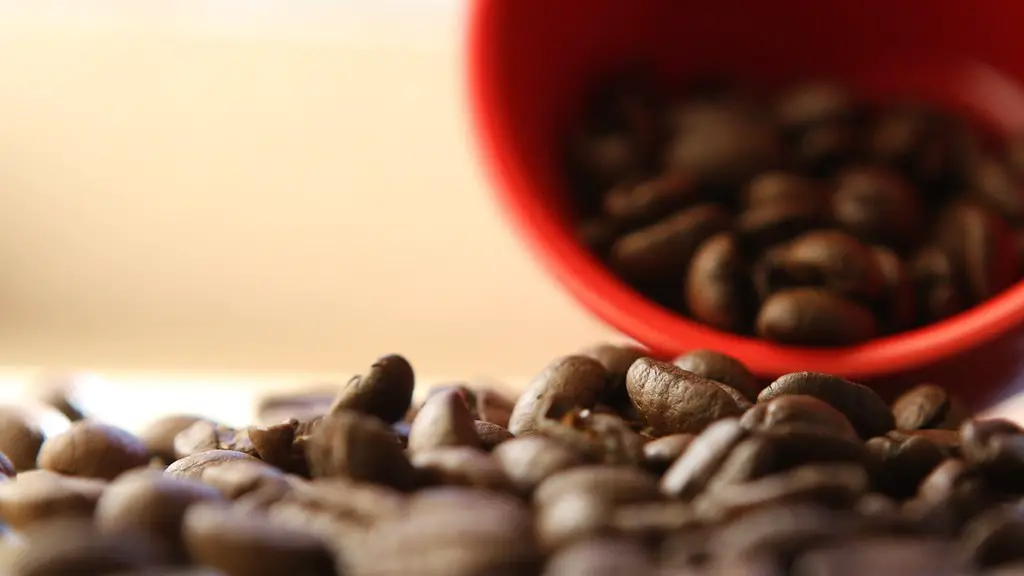It’s no secret that many people rely on caffeine to start their morning or get through their workday. But can drinking too much of it cause a heart attack? It’s a tricky question to answer, and many experts agree that the overall risk of drinking too much coffee and the chances of having a heart attack is low. Still, it’s worth considering some of the possible risks and any indications of how your heart might be affected.
For starters, it’s important to note that caffeine can be “tricky.” It can cause an increase in heart rate and may increase feelings of anxiety and restlessness. It’s also important to remember that a single serving of coffee contains about 95-200 milligrams of caffeine – depending on the size of the drink – and that it’s not recommended to ingest any more than 400 milligrams of caffeine in a single day.
Coffee is also known to have some beneficial effects on heart health, such as reducing the risk of stroke and diabetes. Studies have also suggested that coffee may reduce the risk of death from heart disease and other causes. However, it is important to remember that moderate caffeine intake and regular exercise are important for maintaining heart health.
The thing to remember is that too much of anything can have negative consequences on our health. Consuming more than 400 milligrams of caffeine per day can increase the risk of high blood pressure, insomnia, irritability, dehydration, and headaches. It’s also important to note that caffeine can also interact with some medications, so it’s important to talk to your doctor about any potential risks. Studies have also suggested that drinking too much coffee can increase the risk of heart attack, but it’s difficult to definitively say how much coffee is too much.
It’s important to note that individual reactions to caffeine can vary from person to person, depending on their age, overall health, and genetic makeup. Some people may be more sensitive to caffeine than others, which means that it might affect them differently. For example, a study conducted in 2019 found that participants who had a particular gene variant were more likely to experience an increase in heart rate after consuming more than 400 milligrams of caffeine.
Overall, it’s difficult to say if drinking too much coffee can give you a heart attack. There are some studies that suggest that it might, but they are far from definitive. The key is to find the right balance between enjoying coffee and ensuring that you’re taking good care of your heart health by eating a balanced diet and exercising regularly.
Coffee & Artherosclerosis
Artherosclerosis is the hardening of the major arteries due to plaque buildup. Several studies suggest that drinking too much coffee may lead to changes in the way the body metabolizes bad cholesterol, potentially causing an increase in risk of Artherosclerosis.
A 2017 meta-analysis looked at 16 cohort studies and found that drinking more than six cups of coffee per day associated with a higher risk of developing Artherosclerosis as compared to drinking none. In addition, a 2019 study of more than 5,000 participants found that coffee consumption may be linked to “greater Artherosclerotic plaque burden”.
It’s important to remember, though, that more research is needed. It’s also important to keep in mind that coffee is not the only factor that can lead to Artherosclerosis. Other risk factors include smoking, high cholesterol, diabetes, and high blood pressure.
It’s also important to keep in mind that not everyone drinks the same amount of coffee, and some people may be more sensitive to its effects on their bodies than others. Ultimately, it’s best to keep track of your own health and make sure to discuss any concerns with your doctor.
Coffee and Caffeine Addiction
It’s not hard to understand why so many people rely heavily on coffee – the taste, the energy boost, the convenience. But it’s important to be aware that some people may develop a dependency on caffeine, leading to withdrawal symptoms when they don’t get their daily fix.
Signs that you may be becoming addicted to coffee include drinking multiple cups a day, difficulty sleeping, headaches and irritability when you don’t have access to caffeine. If you think you may have a dependence on caffeine, it’s important to take steps to reduce your intake and switch to a lower-caffeine option, such as tea or decaf.
It’s also important to be aware of how much caffeine you’re taking in. It’s easy to overdo it, especially when ordering from a coffee shop, where it’s easy for a single drink to contain several hundred milligrams of caffeine. Make sure to check labels, and consider switching to lower-caffeine options.
Coffee & Stress
Many people reach for a cup of coffee when they’re feeling stressed or overwhelmed, but it’s important to remember that caffeine can actually increase feelings of stress and anxiety. This is because caffeine is a stimulant, and too much of it can overpower the body’s natural calming systems, leading to increased agitation and restlessness.
If you find that you’re becoming increasingly stressed or overwhelmed by your workload, it can be helpful to drink less caffeinated beverages and switch to a natural herbal tea instead. This can help calm your mind, reduce stress levels, and provide an all-around sense of relaxation.
It’s also important to find healthy ways to manage stress and anxiety. Regular exercise and meditation can be helpful tools for clearing your mind and calming your nerves. Talking to a therapist or joining a support group can also be effective ways to manage stress in a positive and healthy way.
Coffee & Heart Health
Ultimately, it’s important to remember that coffee can have an impact on our heart health, both positively and negatively. Drinking too much of it can increase our risk of developing heart problems, but it can also have some beneficial effects. If you’re concerned about your heart health, it’s important to talk to your doctor.
It’s also important to watch the amount of coffee you’re drinking. Try to stick to 400 milligrams of caffeine or less per day and look into other options if you rely heavily on coffee to get through the day. Regular exercise, a balanced diet, and plenty of sleep are important for maintaining good heart health as well.
Finally, be mindful of any reaction your body has to caffeine. If you feel extra anxious or your heart rate increases after drinking a cup of coffee, you may want to look into lower-caffeine options or cut back on your daily intake. Remember that everyone’s bodies respond differently to caffeine, and it’s important to find the right balance for your own body.




